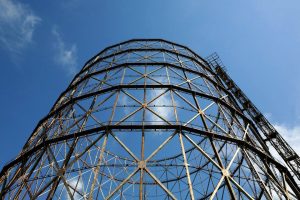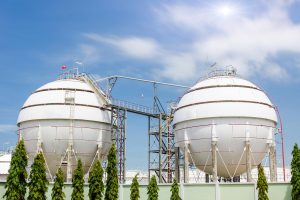Originally designed for participants in the EUI Global Executive Master, this course is now open to all professionals seeking to deepen their understanding of energy markets and regulation. Three features distinguish this course from others in our portfolio:
As part of the EUI Global Executive Master, the Florence School of Regulation has developed a specialisation track on the most pressing energy and climate issues of our time. One of its key components is this new course on Energy Markets and Regulations, which explores the functioning of electricity and gas markets and focuses on the crucial role of regulation.
The course is structured into five learning weeks, each tackling a core aspect of energy markets and regulation.
Weeks 1 & 2 delve into the specificities of gas market regulation, examining how it supports broader policy objectives such as security of supply, decarbonization and competitiveness.
Weeks 3 & 4 shift the focus to electricity market regulation, explaining how it addresses the current challenges of the energy transition, such as volatile market prices and congested electricity grids.
Finally, Week 5 introduces key impact assessment tools and methodologies that are essential for designing effective and future-proof energy regulations.
Introduction
2 October 2025
Welcome class with Marzia Sesini (FSR) and Ellen Beckstedde (FSR): 2 October 2025, 14.00-15.00 CEST
Week 1: Regulation of gas for decarbonization and security of supply
3 October – 10 October 2025
In the first week, we will explore the role of gas in achieving the EU’s decarbonization and security of supply objectives. We will discuss how these two objectives are interconnected and examine the strategies for reconciling them within EU energy policy. As an illustration, we will conduct a comparative case study of the role of gas in the EU and in a selected region of the world.
Keywords: Gas; Decarbonization; Security of Supply
Week 2: Regulation of gas for market liberalization
10 October – 17 October 2025
The second week of the course is devoted to the EU’s gas market liberalization, with particular attention to the Gas Directives and Gas Regulations (“Gas Packages”) and the Network Codes. We will examine these regulatory frameworks, their contributions to market integration, as well as their limitations and challenges. To highlight similarities and differences in regulatory approches, we will compare the EU’s market liberalization process with the US model.
Keywords: Gas Package; Network Code; Market Liberalization
Week 3: Regulation of electricity in times of volatile market prices
17 October – 24 October 2025
In the third week, we start from the fundamentals of electricity market design in Europe. We explore why current market prices are becoming unsustainable for the energy transition and discuss how regulation can help tackle this issue. Based on a global case study, we then compare how similar challenges are being addressed in other parts of the world.
Keywords: European Electricity Markets; Negative Electricity Prices; Volatile Electricity Prices; Hedging; Long-Term Instruments
Week 4: Regulation of electricity in times of congested electricity grids
24 October – 31 October 2025
The fourth week begins from the basic principles of electricity network regulation. We explain why electricity grids are increasingly becoming a bottleneck in the energy transition and examine how the current regulatory framework is evolving to address this challenge. Finally, a case study will illustrate how other continents are preparing the operation and regulation of their electricity grids for renewable energy integration.
Keywords: Electricity Network Regulation; Electricity Grid Congestion; Unlocking flexibility; Grid Connection Queues
Week 5: Fundamental principles for high-quality regulation
31 October – 7 November 2025
The fifth week addresses the fundamental principles of high-quality regulation of energy markets, covering key tools and practices of regulators like cost-benefit analysis, regulatory impact assessments, and public consultations. Through global case studies, we provide deeper insights into the interpretation and evaluation of these regulatory tools in practice.
Keywords: Energy Market Regulation; Regulatory delivery; Cost-Benefit Analysis; Regulatory Impact Assessment
Week 6: Buffer week to work on Mastery Challenges
7 November – 13 November 2025
Deadline to submit the Mastery Challenge: 13 November 2025, midnight CET
Week 7 & 8: Mastery Challenges
Exploring Hydrogen’s Role in Future Energy Systems.
Through this course we provide answers to the following questions:
After completing this course, you’ll be able to:
You will get a hands-on learning experience with:
The course is given in English and developed for:
Participants can choose from three levels of engagement:
The amount of time required to take this course depends on the aimed course level as well as the level of expertise in the subject prior to joining the course. For example:
At the end of the course, the participants can earn a Certificate of Attendance, a Certificate of Completion or a Certificate of Excellence, depending of their performance and engagement throughout the course.
Each year, the Florence School of Regulation – Energy and Climate (FSR Energy & Climate) awards scholarships for a wide variety of training courses targeting a broad audience of professionals and academics.
Applications will be assessed by a Selection Committee of FSR members on a yearly basis. The successful candidates will be informed after February 2026 and will be provided with all relevant information on how to enroll in the online course or residential training of their choice.
Send your application by 25 January 2026.
Discounts
A 10% discount is available for groups of 5 or more participants from the same organisation. Please note that this discount cannot be combined with student discounts or donor free seat offers.
Contact: fsr.secretariat@eui.eu
Cancellation policy
Paid registration fee is non-refundable. However, registrant substitution may be made up to 20 days before the start date of the course.
For more information, please read the full FSR cancellation policy.
**Please kindly send your certificate of current studies with the stamp of your university to FSR secretariat (fsr.secretariat@eui.eu).
The start and end dates of your studies should also be clearly mentioned on the document. Please make sure that your period of studies fully covers the training course duration.
This course is open to all professionals seeking to deepen their understanding of energy markets and regulation.

The implementation of the EU Gas Network Codes (NC) requires an important effort from many participants of the market and sound competence and specialised resources. Join us to gain comprehensive knowledge about…

The training will focus on five areas where cities can be particularly impactful: the uptake of renewable energy, improving the energy efficiency of the building stock, digitalisation and smart grids,…

For its first edition, the Specialised course on Electricity Markets will focus on the state of EU electricity market design, and engage participants in a deep-dive discussion around the role…

All you need to know about the power sector and power systems around the world Power system regulation is never at a rest, and this is particularly true for the…

The European Union (EU) and other major jurisdictions around the world have committed to achieve net-zero greenhouse gas emissions by 2050 or in the immediately following decades. The ‘Getting to Net…

Ensuring a Sustainable and Competitive Future for EU Agriculture The reform of the Common Agricultural Policy (CAP) for 2028–2034 comes at a moment of significant transition for European agriculture and…

From Geopolitics to Trading: Navigate Global Gas Markets with the Experts Building on the success of our online training, Specialised Training on the Regulation of Gas Markets, we are excited…

Learn the fundamental regulatory principles of the electricity and gas sectors through hands-on, real case activities and examples with instructors from national regulatory authorities from Europe and North America, the…

Participate in the most pressing debates on the regulation of transport in the European Union through hands-on activities based on real cases and examples presented by academics, regulatory authorities and…
To meet, discuss and learn in the channel that suits you best.